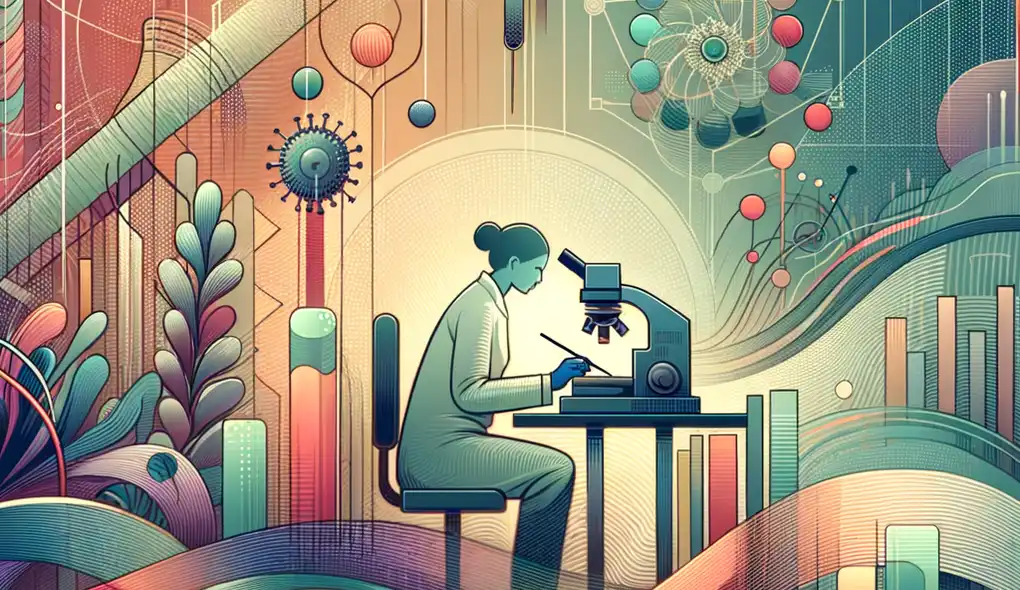Tell us about a time when you had to learn a new programming language or technology. How did you go about it?
Microarray Analyst Interview Questions
Sample answer to the question
I had to learn a new programming language when I joined a project that required me to work with microarray data analysis. I chose to learn R because it is widely used in bioinformatics. I started by taking online tutorials and reading books to get a basic understanding of the language. Then, I enrolled in an advanced R programming course to deepen my knowledge. Throughout the learning process, I practiced coding by working on small projects and solving coding challenges. I also joined online communities and forums where I could ask questions and learn from experienced R programmers. Overall, I was able to quickly grasp the syntax and concepts of R and successfully apply it to analyze microarray data.
A more solid answer
During a project that involved microarray data analysis, I needed to learn R, as it is commonly used in bioinformatics. To gain proficiency, I started by self-learning through online tutorials and books, which provided me with a basic understanding of R syntax and concepts. Wanting to further develop my skills, I enrolled in an advanced R programming course. This course not only enhanced my knowledge of R but also exposed me to real-world bioinformatics challenges. Additionally, I actively participated in online communities and forums dedicated to R programming, allowing me to expand my problem-solving abilities by learning from experienced programmers. Through continuous practice and implementing R in small projects, I became comfortable with the language and successfully utilized it to analyze microarray data.
Why this is a more solid answer:
This is a solid answer because it provides more specific details on how the candidate learned the new programming language and highlights their proactive approach to self-learning and problem-solving. It demonstrates their ability to effectively utilize the programming language in a relevant context.
An exceptional answer
When I joined a project involving microarray data analysis, I recognized the need to learn R, given its powerful statistical analysis capabilities and wide adoption in the bioinformatics community. To ensure a comprehensive understanding, I embarked on a multi-faceted learning journey. Initially, I completed online courses that covered the fundamentals of R programming, allowing me to grasp the syntax and basic concepts. However, to gain domain-specific knowledge, I enrolled in an intensive bioinformatics program that included advanced R programming modules. This immersive experience deepened my understanding of R's functionalities and applications in microarray data analysis. To strengthen my problem-solving skills, I actively participated in Kaggle competitions and collaborated with experienced bioinformaticians, gaining exposure to diverse problem domains and refining my approach to data analysis using R. Through this well-rounded learning approach, I developed a strong foundation in R programming, enabling me to confidently tackle complex microarray analysis tasks in my subsequent projects.
Why this is an exceptional answer:
This is an exceptional answer as it showcases the candidate's commitment to acquiring a comprehensive understanding of the new programming language. It highlights their proactive approach in seeking domain-specific knowledge, participating in real-world problem-solving scenarios, and collaborating with experienced professionals. The answer demonstrates a high level of expertise and adaptability in utilizing the programming language for complex tasks.
How to prepare for this question
- Research the programming languages commonly used in microarray data analysis, such as R, Python, and Perl, to understand their characteristics and applications.
- Take online tutorials or enroll in courses specific to the chosen programming language to build a solid foundation.
- Try to work on small projects or coding challenges to practice applying the programming language to real-world scenarios.
- Join online communities, forums, or participate in bioinformatics competitions to learn from experienced programmers and enhance problem-solving skills.
- Stay updated with the latest advancements in microarray technology and bioinformatics to be aware of new tools and techniques.
- Highlight any experience of learning and utilizing new programming languages or technologies in your resume or portfolio.
What interviewers are evaluating
- Programming Skills
- Ability to Learn
- Problem Solving
Related Interview Questions
More questions for Microarray Analyst interviews